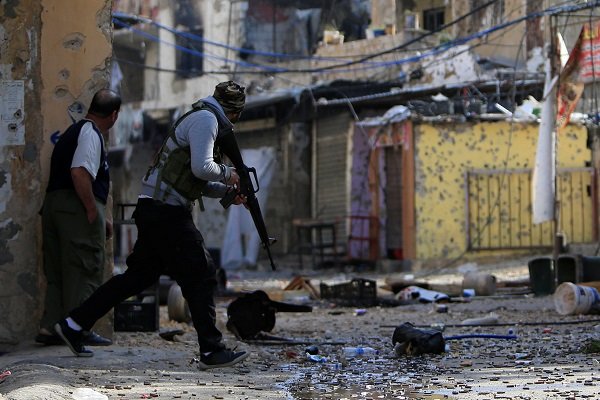Established in 1948, the Ein El Hilweh camp is the largest Palestinian refugee camp in Lebanon in terms of population. The camp has more than 70 thousand Palestinian refugees. Due to the arrival of refugees from Syria since 2011, its population has increased to 120 thousand people.
The presence of elements belonging to various Islamist, Salafi, nationalist and a trend close to the Fatah movement in Ein El Hilweh camp has always made the camp “susceptible” to armed conflicts and political and military exploits by anti-resistance players, especially the Zionist regime.
Events at Ein El Hilweh, which all observers of the region consider as “suspicious,” are an important sign that the Zionist regime is trying to foment internal conflicts in occupied Palestine and Lebanon with specific targets and objectives. The coincidence of the conflicts in Ein El Hilweh with the intensification of the Islamic resistance movements in the West Bank and the increase in deterrence power, and the anti-Zionist movements of the Lebanese Hezbollah well reveals its “behind the curtain” dimensions. No player benefits from such conflicts as much as the Zionist regime.
The Zionist regime pursues four main and major targets by fomenting conflicts in Ein El Hilweh with the tools of “takfiri groups” that serve the interests of this regime:
First, diverting public opinion from the “tense and critical” situation of the regime inside and as a result of buying time to get out of the existing crisis, in a situation where the internal protests against Netanyahu’s cabinet not only did not stop after 31 weeks but with its expansion to the command body and ranks of the army and other security and military institutions have also intensified.
Second, “intra-group involvement” in Palestine in such a way that it engages them with internal tensions and religious war and directs their focus from resistance against the Zionist regime to internal disputes and conflicts.
Third, the “intensification of Lebanon’s internal crisis” and, as a result, preventing the formation of a government to destroy the face and image of Hezbollah and discredit it. At the same time, the Zionist regime is trying to introduce the Palestinian residents of the Ein El Hilweh camp as the source of the problem to limit the space for their presence and activity in Lebanon, especially the labor market.
Fourth, “destroying the Ein El Hilweh camp” as one of the main and large centers of the Palestinian population and dispersing its residents so that, if possible, the principle of the right of return of the Palestinian refugees is eliminated.
This right has been officially recognized in UN Resolution 194 and indicates that Palestinians who have been displaced from their land for any reason since 1984 can return to the land and home they lived there before.
Of course, there is an important and key point here; today, the Zionist regime is in a critical situation. Field and political developments in recent years have clearly shown this issue. In the battles of the past two years, the Zionist regime’s war, terror, and violence machine has become inefficient and “failed” in an unprecedented way so that it cannot succeed in the war with even the smallest Palestinian resistance groups that are equipped with light weapons.
In order to escape from the predicament that this regime is caught in, an important part of which is caused by the calculated approach of the Palestinian resistance, Hezbollah of Lebanon, and the intelligent and precise measures of Seyed Hassan Nasrallah, the leaders of the regime have resorted to “sedition” inside Palestine and Lebanon, which the recent events of Ein El Hilweh camp are one of its important and dangerous aspects. Unfortunately, some internal disputes in occupied Palestine and Lebanon have also provided the ground for this sedition.
Considering that the dimensions and angles of the Zionist regime’s conspiracy in Ein El Hilweh are not hidden from anyone, therefore, it is expected that the Islamic resistance of Palestine as well as the people of Lebanon, while being patient and “vigilant,” will stop the conflict in Ein El Hilweh as soon as possible and not allow the Zionist regime’s conspiracies to come true. Disputes and conflicts in Palestine and Lebanon are the last and only way out of the Zionist regime’s internal and external crisis.
At present, there is no “necessity” and no higher priority than putting aside the differences and maintaining the field and political “unity and integrity” between the people of Lebanon and Palestine and the resistance groups against the Zionist regime, which is the “source” of all the problems and differences in the region and the Islamic world.
The opportunity given to the Palestinian and Lebanese resistance today and after 75 years must be used carefully and quickly to ” confront the Zionist regime.”










0 Comments